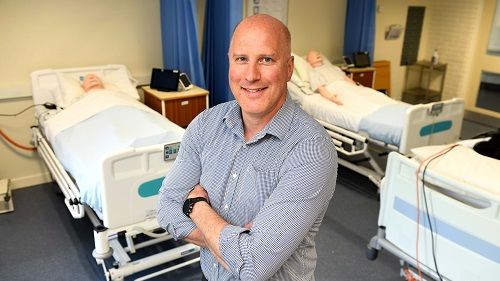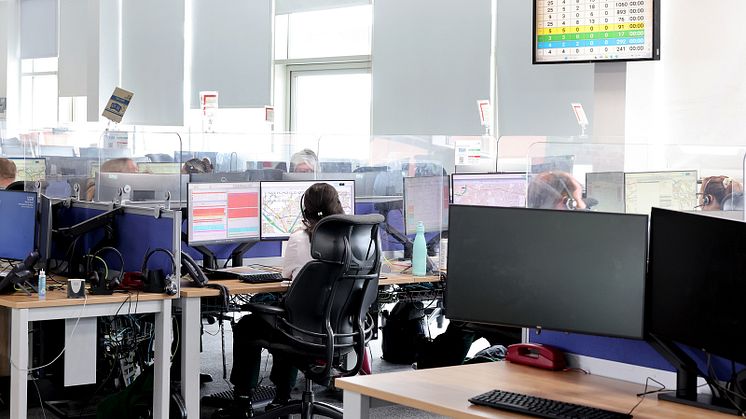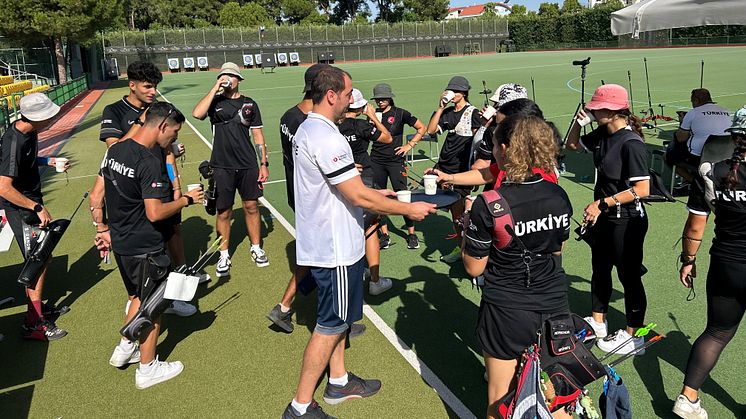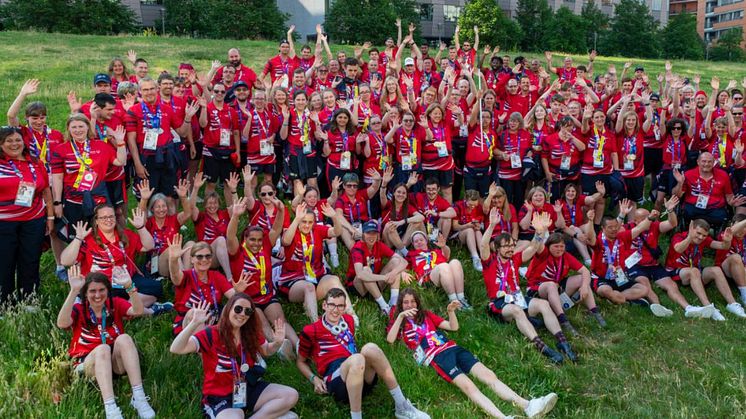
Press release -
Special Olympics bring life-changing memories for Northumbria University academic
Changed forever by his experiences at the Special Olympics World Games, a Northumbria academic is now encouraging others to get involved in supporting the movement.
In June, Berlin’s historic Olympiastadion was packed to the rafters as thousands of athletes with intellectual disabilities from across the world showcased their remarkable abilities in front of cheering crowds.
As lead medical officer for Team Special Olympics GB, Northumbria University’s Dr Daniel Monk was there throughout, managing the health and wellbeing of the team and waiting in the wings in case of injury.
The “exhausting and full on” experience nevertheless brought Dr Monk memories that will last a lifetime – from watching the inspiring athleticism of competitors to hearing the cheers resounding around the stadium.
He left the Games inspired and determined to encourage others to volunteer and learn more about the movement, which is the biggest provider of sports training and competition for people with intellectual disabilities.
Dr Monk, a registered nurse and an assistant professor at Northumbria, said: “This is a group of individuals often overlooked by society and all were in their element being the focus of the event, and rightly so because their sporting achievements are phenomenal.
“Some won gold medals just hours after they’d been very unwell and that’s incredible – but it’s not just about the medals, it was about watching athletes do their very best and come away from the experience knowing they had represented their country brilliantly.
“I’ve never seen so many smiling faces, so proud and pleased to be out there representing Great Britain, achieving their best and changing their lives.
“The crowds were amazing, they didn’t care just about winning medals or watching elaborate athletic feats, they cared about the individual achievements they could see out there and cheered so loudly for everyone.”
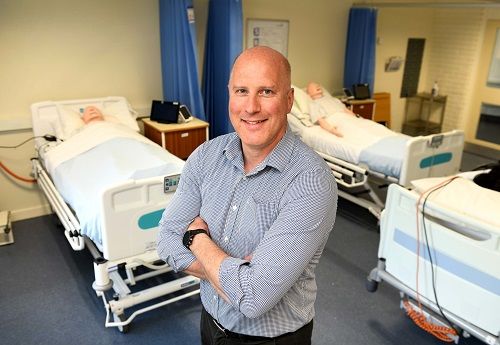
As the Games drew to a close with an emotive ceremony, all Dr Monk could think about was how the event represented so much more than the athletic experience.
“It’s so much bigger”, he explains, “It’s bringing to the attention of the world that these members of society have such a lot of value and so much to give, changing perceptions of those with intellectual disabilities.
“The experience reminded me of just what people with intellectual disabilities can be capable of and it does no harm to be reminded of that.
“Without wanting to group them all together – because there is so much diversity within the team – these athletes are challenging stereotypes and helping to change the representation of intellectual disabilities for the better.
“From a psychological and athletic perspective, they prepared for months for this event and did brilliantly in representing the best of Britain – I’m just delighted I could go along and be part of it, it was an absolute honour.”
Dr Monk, who specialises in teaching students about varying perspectives on emergency, urgent and unplanned care, said the experience would inform his work going forward, adding: “I want my future research to be representative of an inclusive society that does not pigeonhole people in a way we’ve been historically encouraged to do.
“Events like the Special Olympics World Games prove we are starting to move in the right direction, towards acceptance of us all being humans first and foremost – after that, it’s all just labels.
The Special Olympic Games could be held in Britain within the next decade, according to recent reports suggesting that the Government is considering the feasibility of hosting the 2031 Special Olympics World Summer Games.
Ahead of then, Dr Monk is encouraging Northumbria’s staff and students, as well as those outside of the university, to volunteer to support Team GB, and take away memories that could last a lifetime.
He said: “I’m urging everyone to get involved in whatever way they can, there are so many opportunities to do so.
“For me, it’s been a reminder of what is and isn’t important in life.
“With all they have going against them in society, those athletes went out there and achieved their best, and the crowd just went bonkers to see it.
“They are incredible Special Olympic athletes and among the best in the world.”
To find out more about how to volunteer to support Team Special Olympics GB, visit https://www.specialolympicsgb.org.uk/volunteers/volunteer-with-us.
Topics
Categories
UNIVERSITY OF THE YEAR 2022 (Times Higher Education Awards)
Northumbria is a research-intensive university that unlocks potential for all, changing lives regionally, nationally and internationally. Find out more about us at www.northumbria.ac.uk
--- Please contact media.communications@northumbria.ac.uk with any media enquiries or interview requests ---








